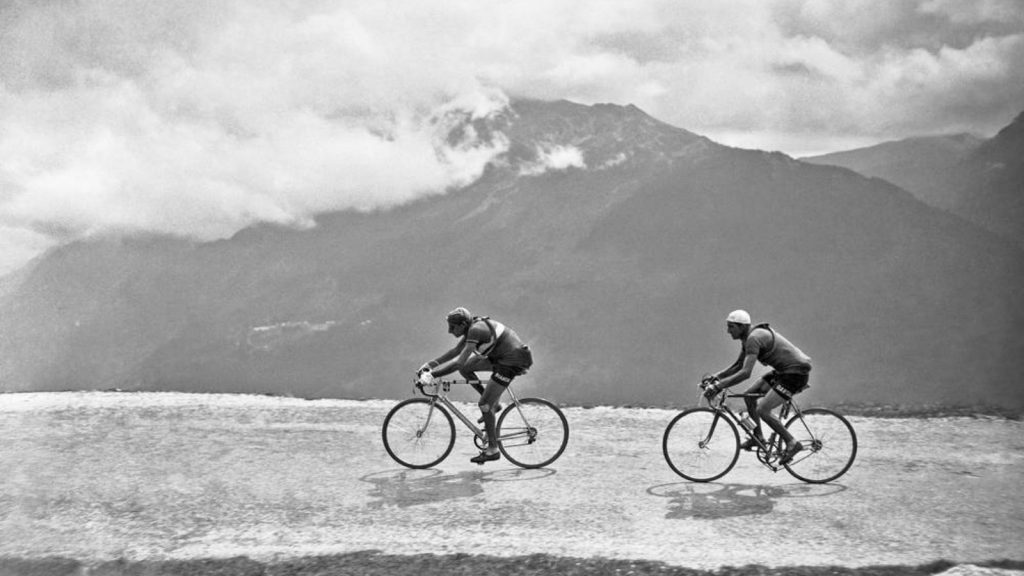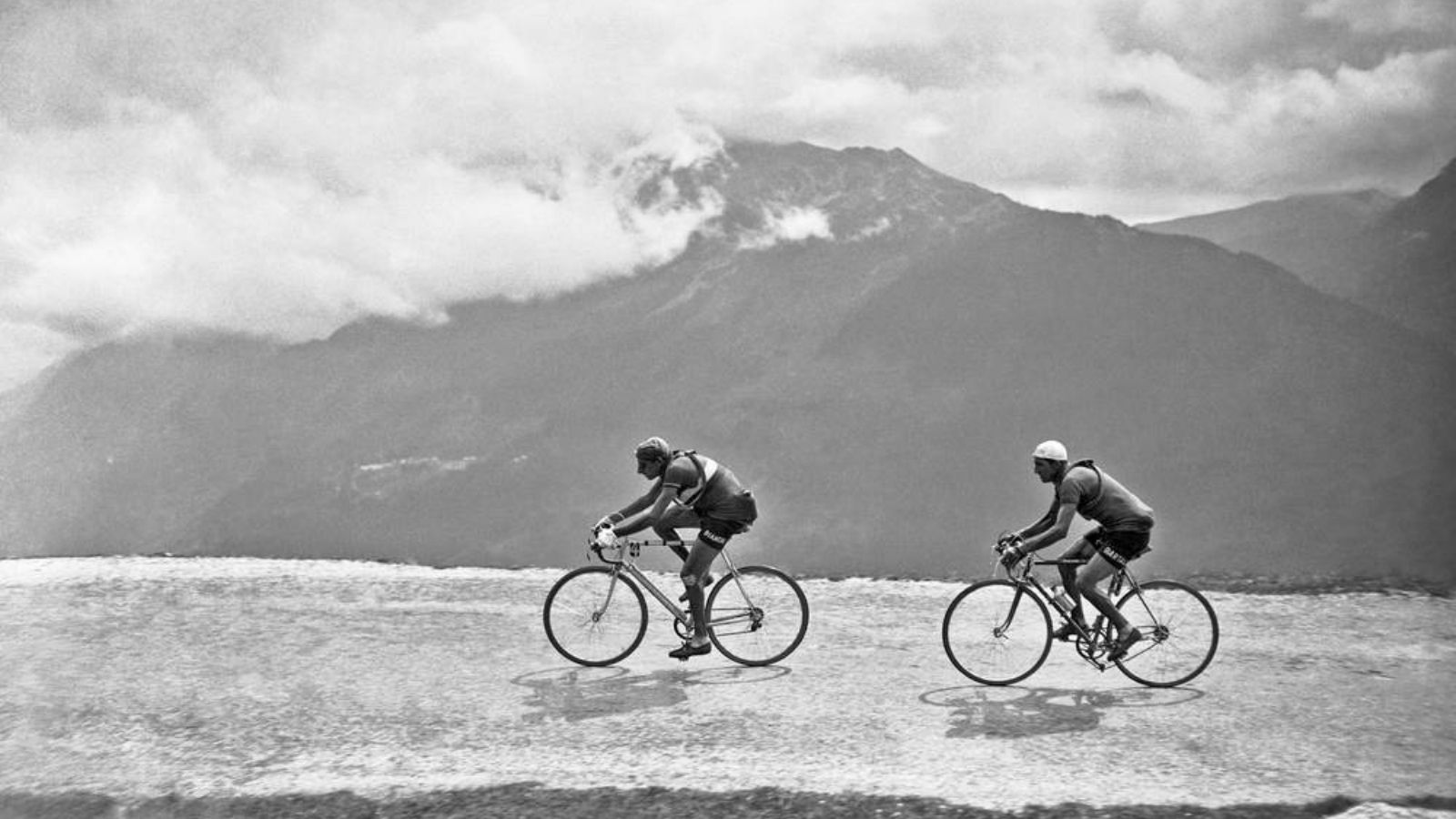FAUSTO COPPI AND GINO BARTALI DURING TOUR DE FRANCE 1949
The 1949 Tour de France marked a high point in the legendary rivalry between two Italian cycling icons, Gino Bartali and Fausto Coppi.
Bartali had already claimed two Tour victories (1938 and 1948), while Coppi, though a three-time Giro d’Italia champion (1940, 1947, 1949), was making his Tour debut. Determined to make history,
Coppi aimed to achieve the elusive Giro-Tour double,
a feat never before accomplished in cycling.

Fausto Coppi aspired to lead the Italian team in the 1949 Tour de France, but the situation was far from simple. His fierce rivalry with teammate Gino Bartali complicated matters for their team manager, Alfredo Binda, who had to carefully balance the egos and demands of both cycling legends. Binda knew that handling this situation with tact and diplomacy was crucial if the team was to succeed, but Coppi’s own actions often made this delicate task even more difficult.
The tension came to a head during the 5th stage. Coppi had broken away with the race leader, Jacques Marinelli, but disaster struck when he crashed. Needing a bike change, Coppi refused to settle for any replacement, insisting on using his own spare bike, which delayed him further. In a show of loyalty and sportsmanship, Bartali stayed with his rival until Binda arrived with the requested bike. The clock was ticking, and by the time Coppi was back in the race, the damage had been done.
As they continued the stage, Coppi’s condition worsened. Hunger and fatigue began to take their toll, and it was clear he was struggling to keep pace. Recognizing the severity of the situation, Binda made the difficult decision to release Bartali, allowing him to ride on without waiting for Coppi. The consequences for Coppi were severe—he lost a crushing 18 minutes by the end of the stage, placing him 36 minutes behind Marinelli in the overall standings. For a man with dreams of winning both the Giro d’Italia and the Tour de France in the same year, this was a devastating blow.
That evening, Binda faced one of the greatest challenges of his career.
Coppi, dejected and exhausted, was on the verge of quitting the race entirely. It took all of Binda’s persuasion and skill as a manager to convince the younger rider to continue. The emotional toll of that night was immense, and Binda knew the future of the team’s Tour hopes rested on Coppi’s decision.
Despite the setback, Coppi’s extraordinary form was far from gone. He bounced back with a vengeance over the following stages, showcasing his immense talent and determination. On the 7th stage, a time trial, he put on a masterclass, winning the stage and signaling to the peloton that he was far from finished in this race. His performance over the next few days was a reminder of why he was regarded as the youngest Campionissimo, and why his name would go down in cycling history.
